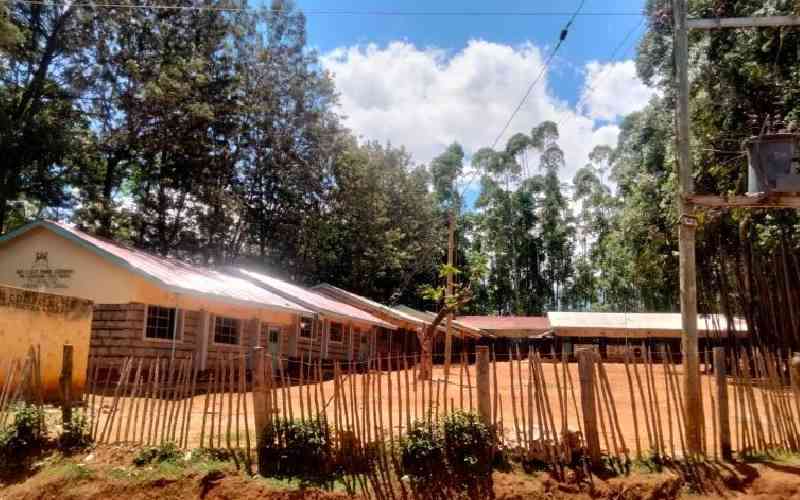×
The Standard e-Paper
Join Thousands Daily

Kiboino Primary School, located in the Kachibora area of Cherang'any constituency, is purportedly the smallest public school in Trans Nzoia County, yet it boasts the highest pupil population relative to its land size.
Situated on a half-acre plot, this educational institution consists of three blocks of classrooms accommodating over 600 pupils, with three dilapidated pit latrines cramped within the compound.